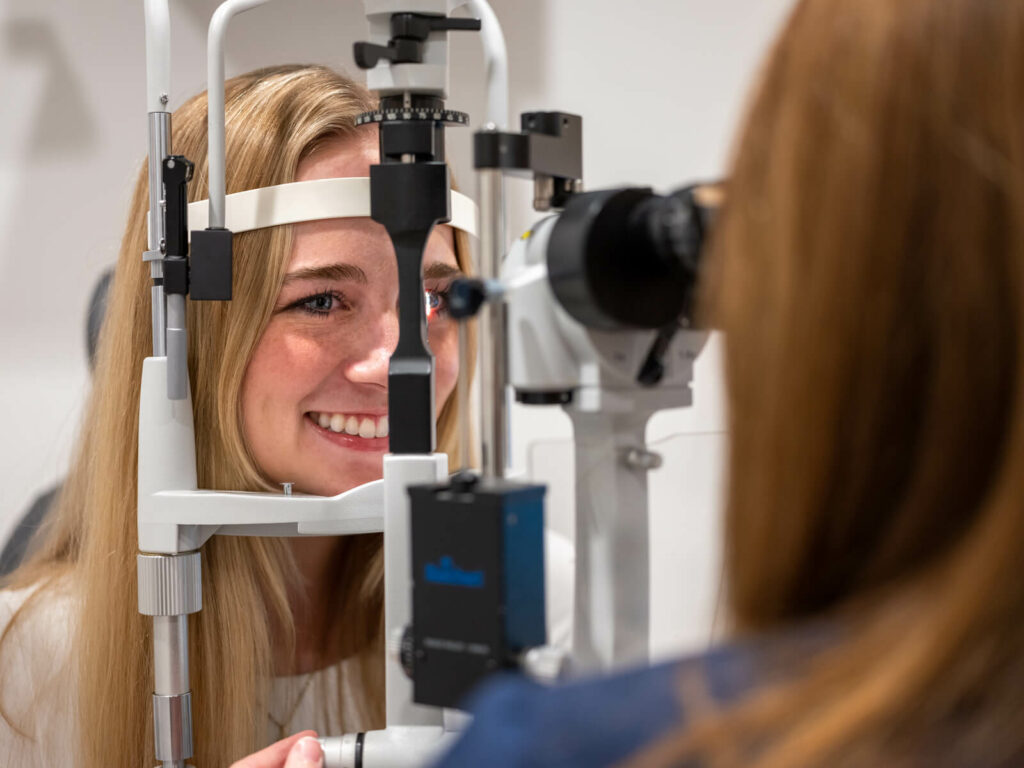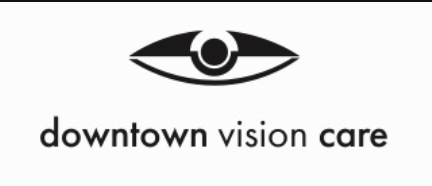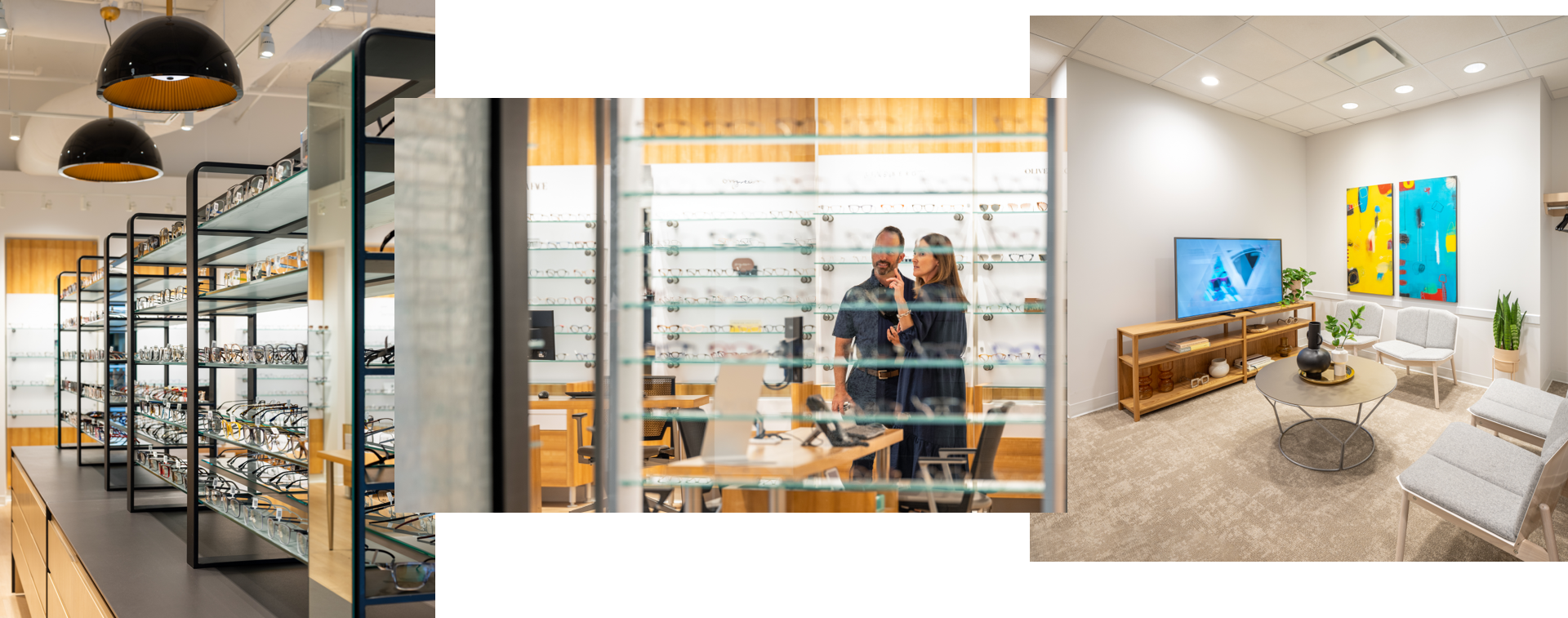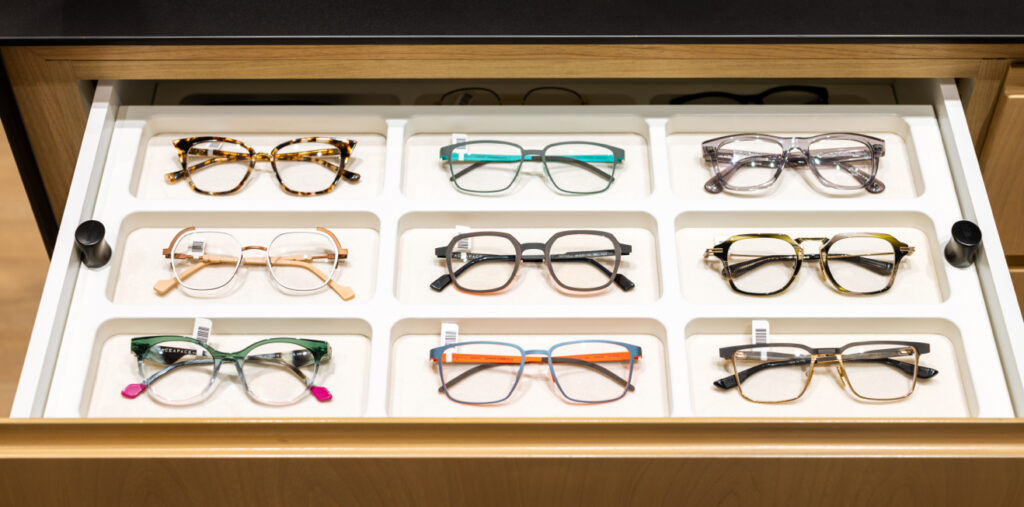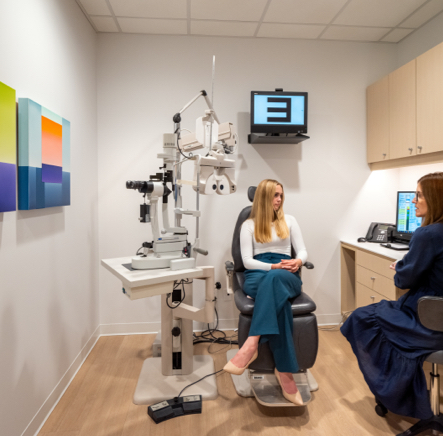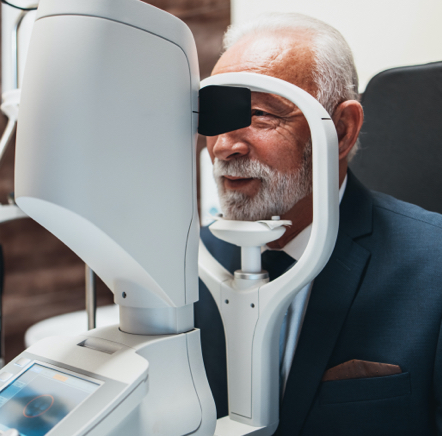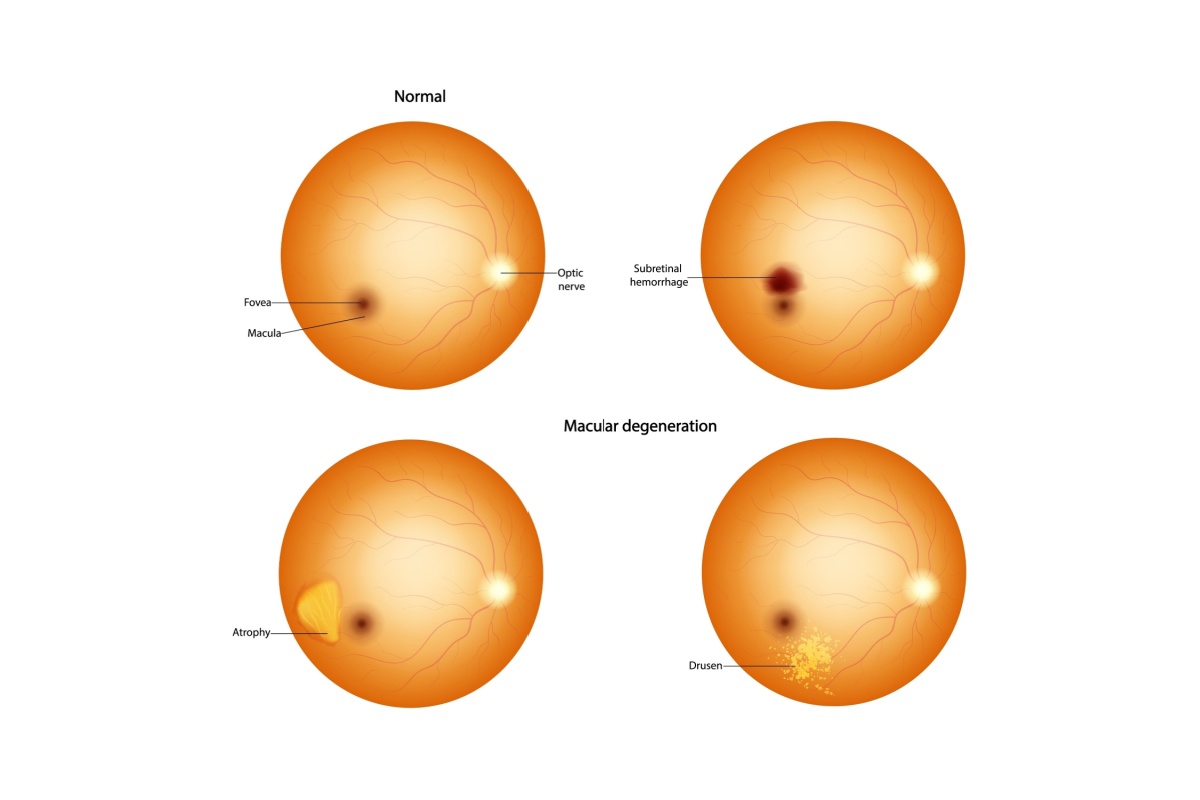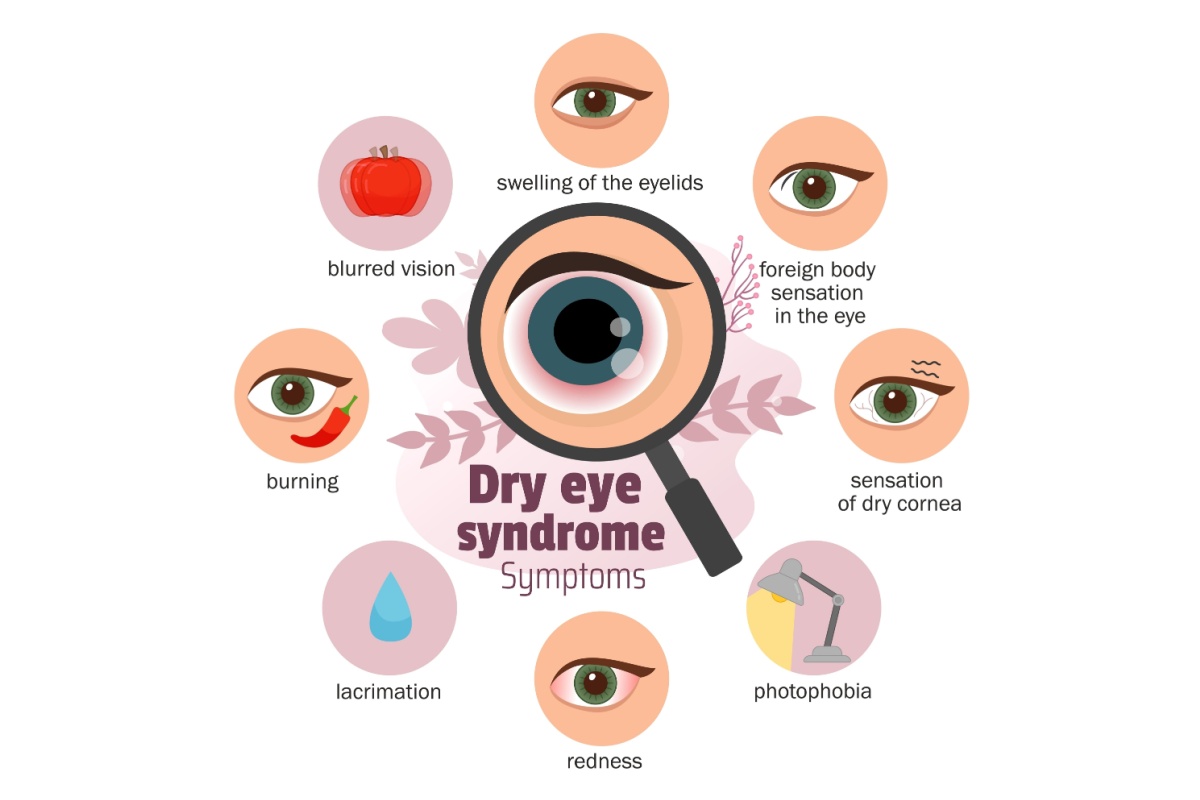We want everyone to know just how important regular eye exams are for people of all ages.
We recommend annual eye exams for school-age children, those with diabetes, those who wear contact lenses, and adults over 65. Adults between the ages of 20 and 64 may only need an exam every 2 years, but that can depend on your personal eye health and medical history.
Glaucoma, cataracts, and age-related macular degeneration are just a few of the conditions that can affect your eye health. When we provide eye exams, we go beyond basic vision screenings and use advanced diagnostic technology to get a full view of your eyes and a clear understanding of your eye care needs.
Why Are Regular Eye Exams Important?
An eye exam is not only about determining whether you need glasses or contacts or how well you can read a letter chart. Regular eye exams are crucial because they can help detect early signs of eye conditions and ultimately help you preserve your vision.
Many eye conditions can develop without noticeable symptoms. Some of our patients have delayed getting eye exams for many years, only to come in at the insistence of a family member. In some of those cases, we have discovered subtle vision loss caused by conditions like glaucoma that the patient themselves had not noticed.
For example, we had a patient who didn’t see the need for getting her eyes checked due to having good vision. Her husband, who happened to be a contact lens wearer, diligently came in for an annual eye exam.
After nearly five years of persuasion, the husband finally succeeded in convincing his wife to come in for an examination. It was during this visit that Dr. Norris made a significant discovery. As it turned out, the patient had developed glaucoma, and her superior vision in one eye was already showing signs of decline. She hadn’t been able to notice the changes in her vision when both eyes were open.
Since then, she has become a regular at our clinic, visiting every six months to receive the essential glaucoma treatment. Our primary focus now is to preserve her remaining vision.
This entire situation underscores the importance of regular check-ups. If she had been coming in for routine examinations, we may have been able to save her from any vision loss. It serves as a powerful reminder that timely and consistent eye examinations are crucial for detecting and addressing potential issues before they progress.
Getting an eye exam can also help detect other health issues, like cardiovascular diseases, diabetes, hypertension, some cancers, brain injuries, and neurological conditions. In that way, a comprehensive eye checkup can give you assurance about your eye health and some insight into your overall health.
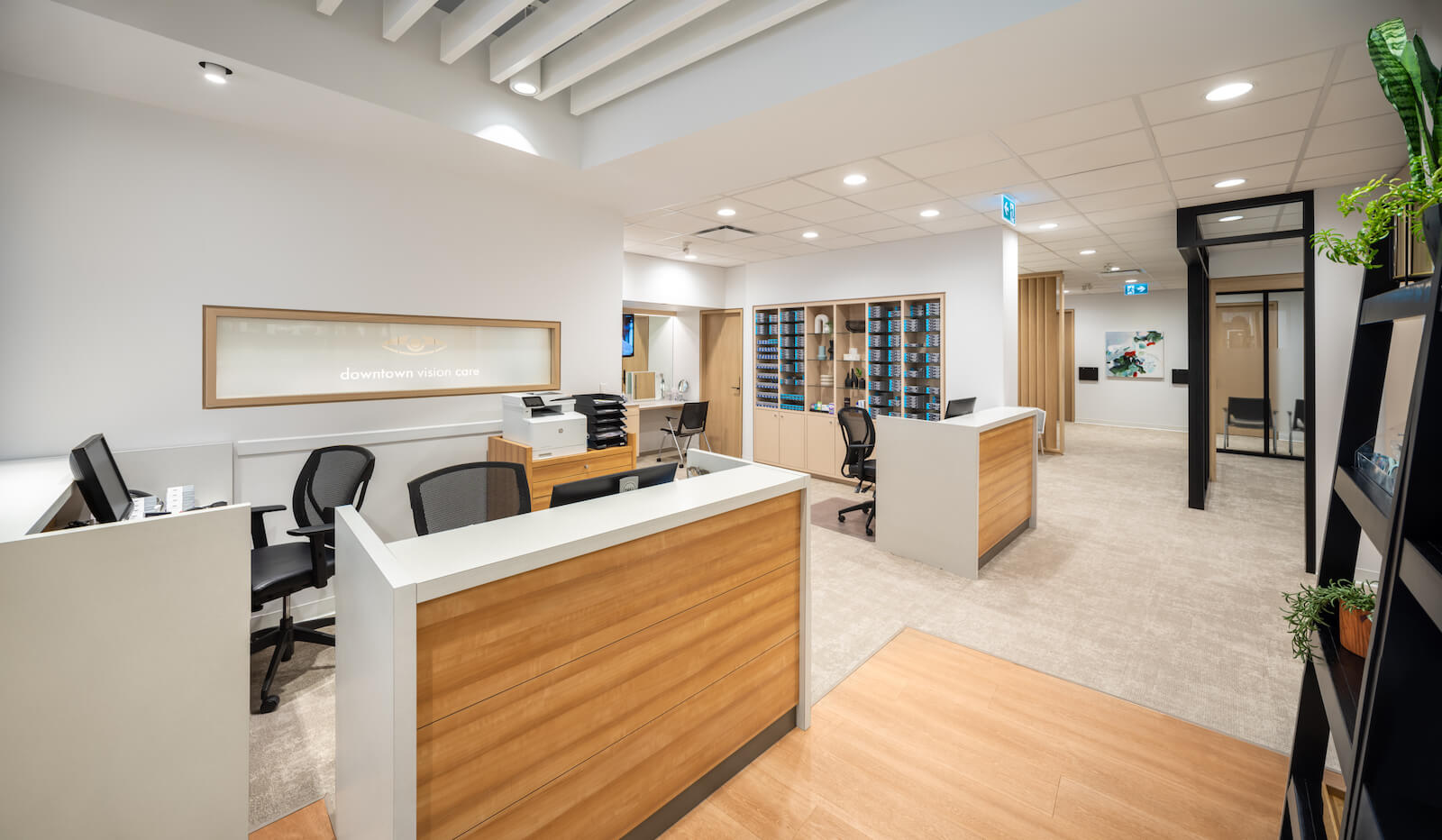
Eye Exams for Different Age Groups
There are specific guidelines for how often people in different age groups should get comprehensive eye exams, but the most important thing to remember is that you should see your eye doctor regularly.
When you visit us, we can provide specific guidance based on your individual eye health for how often you may need an eye exam and the types of treatments or lifestyle changes we may recommend for preserving your vision.
Eye Exams for Infants & Children
We recommend infants receive their first comprehensive eye exam when they are 6-12 months old, and we recommend another for young children at 3 years old. Between the ages of 3 and 5, an eye exam can help identify possible vision problems that could affect your child’s future learning and development.
School-age children should have an annual comprehensive eye exam until age 19. A yearly eye exam can help support your child’s visual development throughout their growing years with early, personalized treatment for their vision needs.
Eye Exams for Adults
Adults between the ages of 20 and 64 with no underlying serious vision conditions should get a comprehensive eye exam at least every 2 years. Those with diabetes should schedule an exam each year, and those who wear contact lenses should also have annual eye exams.
Some risk factors, such as a family history of specific eye diseases, could also require adults to be evaluated every year. When you visit us for an eye exam, we can help you determine your risk of developing specific eye conditions—and provide personalized guidance for future eye care based on your needs.
Eye Exams for Seniors
Your risk of developing vision problems and eye diseases can increase as you get older. Therefore, seniors aged 65 and over should schedule an eye exam every year to detect and treat eye conditions that are more common for older adults, such as macular degeneration, cataracts, or glaucoma.
What Happens During a Comprehensive Eye Exam?
When you visit us for an eye exam, we will evaluate your medical history, the quality of your vision, the health of the external and internal parts of your eyes, the ability of your eyes to adjust and focus, eye movement and coordination, and your peripheral vision. We may also check your colour vision and depth perception.
Some of the tests we provide may be based on your risk of developing specific eye conditions, as well as your personal vision needs.
The important thing to remember is that all these tests are essential for helping us get a full understanding of your eye health, so we can provide personalized care to support your unique eyes.
Schedule Your Next Eye Exam with Downtown Vision Care
The importance of regular eye exams cannot be understated. No matter your age, they are essential for preserving your vision. Depending on your age, how often you should get an eye exam will vary, and our team of optometrists is ready to meet your needs whenever you need us.
We use advanced diagnostic technology during your eye exam, schedule 20-30 minutes for exams, and provide comprehensive care for all your vision needs. Whether you need new glasses or have specific concerns about your eye health, our team is ready to help.Call us today to schedule your next eye exam at our Calgary optometry clinic.


